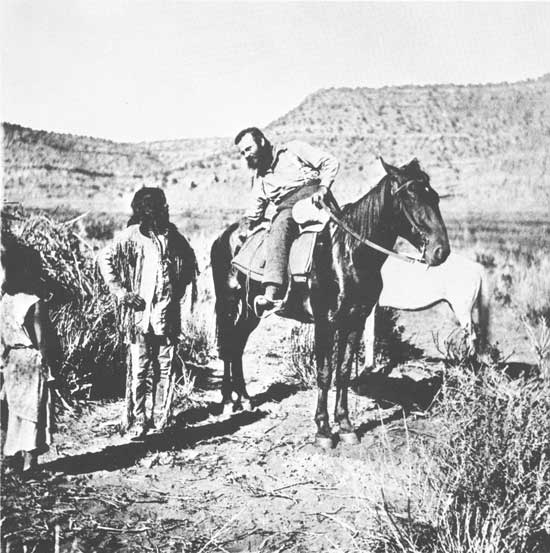
|
Geological Survey Professional Paper 670
John Wesley Powell and the Anthropology of the Canyon Country |
ABSTRACT
JOHN WESLEY POWELL AND THE ANTHROPOLOGY OF THE CANYON COUNTRY
By DON D. FOWLER,1 ROBERT C. EULER,2 and CATHERINE S. FOWLER3
1Desert Research Institute, University of Nevada, Reno, Nev.
2Prescott College, Prescott. Ariz.
3University of Nevada, Reno, Nev.
From 1868 to 1879, John Wesley Powell devoted part of his time to a study of the Indians of the Canyon Country—those areas of Utah, western Colorado, northern Arizona, and northwestern New Mexico that are drained by the Colorado River and its tributaries. In 1879, Congress provided money for the completion of Powell's ethnological work, and this led to the creation of the Smithsonian Institution's Bureau of American Ethnology. More than 250 archeological sites have been found below the rims of Marble and Grand Canyons; 37 of the sites are along Powell's river route, but only eight are recorded in Powell's reports or in the journals of those who went with him. The prehistoric human history of the Grand Canyon region is briefly described here by R. C. Euler. The origins of the Indians in the Canyon Country are portrayed by D. D. and C. S. Fowler, and brief accounts are presented, using quotations from Powell's notes, on Indian customs, practices, and beliefs.

|
| John Wesley Powell and Southern Paiute Indians. Photograph by J. K. Hillers, 1873, from Smithsonian Institution, Bureau of American Ethnology Collection. |
| <<< Previous | <<< Contents >>> | Next >>> |
pp/670/abstract.htm
Last Updated: 13-Jan-2009